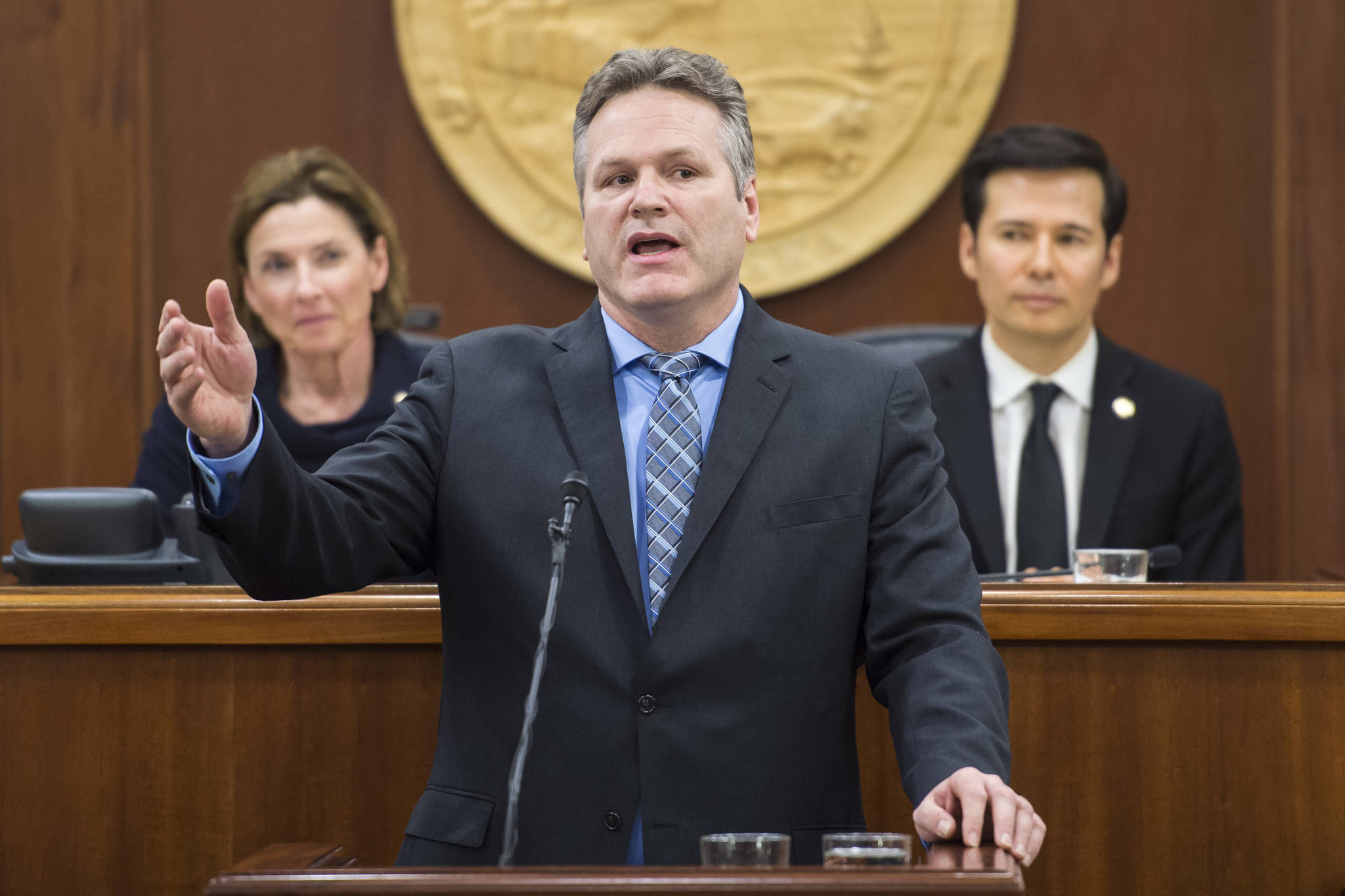As Alaskans take various and mostly predictable positions on Gov. Mike Dunleavy’s proposed budget reductions, a theme seems to be emerging in the Legislature. Legislators are far from reaching any kind of consensus, yet it’s possible to discern some common elements that presage a possible outcome down the road.
In the face of Alaska’s projected $1.6 billion deficit, to no one’s surprise, some voices demand passage of new revenue measures — a statewide income tax or a sales tax. Others argue steep budget cuts are necessary even while Permanent Fund Dividends be enshrined in Alaska’s Constitution and are essentially untouchable.
Given the current makeup of the Legislature, it’s not likely any of these scenarios will come to pass this year.
The governor’s proposals, while balancing the budget, depend on an array of debatable statutory and policy changes. These are far-reaching and, in some cases, invite lawsuits and leave to the imagination potential consequences down the road.
[Opinion: Gov. Dunleavy follows through on campaign commitments]
Nevertheless, Dunleavy deserves credit for finally forcing Alaskans to discuss the fiscal reality confronting us.
In the Legislature, even conservative voices supporting budget reductions are distancing themselves from the level of cuts being contemplated by the administration.
No doubt they are being influenced by the municipalities they represent.
Many proposed cuts would effectively shift much of the reductions to municipalities across the state. This puts questions of “needs vs. wants” squarely in the laps of local taxing authorities where, some would argue, they belong.
But, the wheels of bureaucracy move slowly, and to assume local governments could possibly react in time to absorb these reductions by either raising taxes or canceling projects and services overnight is not reasonable.
[Opinion: Time for budget honesty]
Furthermore, proposed cuts to the ferry system, health care and education, for example, require time to analyze for reductions to make sense.
Regardless of one’s feelings about proposed reduction levels, it seems many Alaskans prefer a more realistic approach that phases reductions in over time.
The House Majority Coalition is signaling a tax is off the table this year, and to expect budget cuts. “The sheer complexity of taking on the proposed change to the budget itself will consume most our time going forward,” House Speaker Bryce Edgmon said recently. Edgmon said he’s asked caucus members to “help share the pain.”
Senate Finance Committee Co-Chair Natasha von Imhof explains it this way, “I keep hearing the administration referring to this ‘fiscal crisis.’ We don’t have a fiscal crisis. We have a priority crisis. We have enough money to pay for a certain level of government services, and a certain level for a dividend. We just don’t have enough money to pay for both at the highest level desired.”
[Opinion: Day of reckoning for Alaska’s budget has arrived]
Given the House and Senate public positions, what outcome is possible and reasonable in the session time remaining?
The final date to approve a budget — June 30 — is fast approaching. With much of the session taken up with organizational changes, legislation supporting the governor’s budget proposal has yet to be reviewed.
It isn’t hard to see where we are headed and to do the math.
$1.6 billion in suggested cuts cannot be absorbed in the short term and new taxes, even if proposed, would likely be vetoed.
There is only one existing revenue source available large enough to make a difference.
Alaska’s Permanent Fund.
[130 testify on payback PFD, public gives more balanced feedback]
Approved last year under Senate Bill 26, Percent-of-Market-Value (POMV) legislation allows a portion of the Permanent Fund earnings to be split between a permanent fund dividend (PFD) and paying for government services.
Maintaining PFD’s near last year’s level would make available enough funding to shrink the deficit to a manageable level — in the $350 million range. A deficit of this size could be handled with targeted expenditure reductions and a minimal draw from the Constitutional Budget Reserve.
When warranted, Dunleavy would have the option of restoring PFD’s to a higher level in the future, thereby keeping his campaign promise, but it would allow time for any further cuts to be absorbed and Alaska’s economy to continue its recovery.
Equally as important, maintaining curtailment of the PFD during this crisis means every Alaskan would share the pain.
• Win Gruening retired as the senior vice president in charge of business banking for Key Bank in 2012. He was born and raised in Juneau and graduated from the U.S. Air Force Academy in 1970. He is active in community affairs as a 30-plus year member of Juneau Downtown Rotary Club and has been involved in various local and statewide organizations. He contributes a regular column to the Juneau Empire. My Turns and Letters to the Editor represent the view of the author, not the view of the Juneau Empire.

